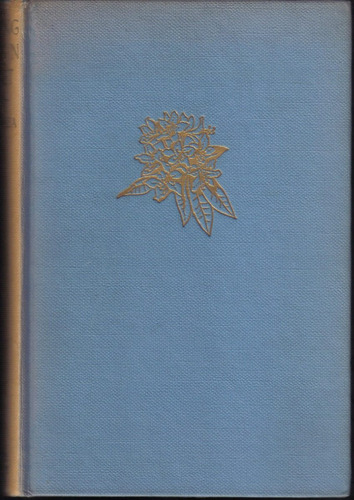Young Days In Tibet, By Tsewang Y. Pemba. Primera Edición!
en 6 cuotas de
¡Última disponible!
+100 ventas
+100
Ventas concretadas
Brinda buena atención
Despacha sus productos a tiempo
Medios de pago
Hasta 12 cuotas sin tarjeta
Tarjetas de crédito
Tarjetas de débito
Efectivo



Descripción
Young days in Tibet, by Tsewang Y. Pemba. Ed. Jonathan Cape, London, 1957. Tapa dura. Primera Edición. Tamaño 20.5 x 14 cm. Estado: interior intacto, sin escrituras, subrayados, manchas ni sellos. Tapas en muy buen estado. Lomo con signos del paso del tiempo. El libro no presenta roturas ni faltantes. Cantidad de páginas: 184
Dr. Tsewang Yishey Pemba (June 5, 1932 – November 26, 2011) MBBS (London) FRCS was the first Tibetan to become a doctor in western medicine, and to become a Fellow of the Royal College of Surgeons. He founded the first hospital in Bhutan. He is also credited for writing the first work of fiction by a Tibetan in English, “Idols on the Path”, published in 1966, and is also regarded as the first Tibetan to publish a book in English, “Young Days in Tibet”, published by Jonathan Cape in 1957.
Dr. Pemba was born in 1932 in Gyantse, Tibet. His father was Rai Saheb Pemba Tsering, a prominent member of the British Political Office having served as British Trade Agent.[5] The Pemba family had also made Gangtok their home, living in the residence of late Tashi Tsering, President of Sikkim State Congress.
Tsewang "Yishy" Pemba had no formal education until the age of nine when he started in 1941 at Victoria Boys School in Kurseong where he was until 1948. Decades later he wrote about his experience. In 1949 he went to read Medicine at London University at University College and University College Hospital. In 1955, Tsewang Pemba graduated with M.B. and B.Sc. degrees, the first Tibetan student to receive British medical qualifications. He then was recruited by the future Prime Minister of Bhutan, Jigme Dorji, to establish that country’s first hospital and worked in Bhutan from 1956 to 1958. In 1959, Dr. Pemba moved to Darjeeling where he worked until 1965 for Dooars and Darjeeling medical association hospital (DDMA) run by the Indian Tea Association when he also looked after the Tibetan Refugee School and the Tibetan Refugee Self Help Center. In 1959, the uprising in Lhasa, Tibet, against the occupying Chinese forces caused thousands of refugees to India, and many to Darjeeling. Pemba volunteered to work at the Tibetan Refugee School and soon became a well-known figure amongst many high-ranking Tibetan lamas; those he treated included Rangjung Rigpe Dorje, the 16th Karmapa; Dilgo Khyentse Rimpoche; Dudjom Rinpoche, an incarnation of a 1,000-year-old line of spiritual masters; Great Dzongsar Khyentse Chökyi Lodrö; Chatral Rinpoche; Kalu Rinpoche; Tai Situ Rinpoche and Shamarpa.
In 1965 he returned to Britain to specialise in surgery and in 1966 he was awarded the Hallett Prize for coming first in the primary examinations of the Royal College of Surgeons; he became a Fellow in 1967. He returned to Darjeeling to work until about the mid-1980s, at this time he befriended Thomas Merton. Dr. Pemba, then returned to Bhutan to become Superintendent of the National Referral Hospital, Thimphu. He was also appointed to be a United Nations certifying doctor and sat on the committee devising a Bhutan national formulary. In 1989, was a member of the Bhutan delegation to WHO in Geneva. While in Bhutan, Dr Pemba served as consulting physician to Bhutan’s royal family in this period as well.
Dr Tsewang Yishey Pemba died at Siliguri on November 26, 2011.
Contents
Introduction
I. The Chumbi Valley
II. The Donkar Monastery
III. The oracle of the Donkar Monastery
IV. Eccentrics, festivals, dances, minstrels and customs
V. "Migou" or the abominable snowman
VI. On the road to Lhasa
VII. Lhasa and its sights
VIII. The Dalai Lama
IX. Life in Lhasa
X. Festivals, dance and customs in Lhasa
XI. Tibet and the occult
XII. Farewell to Lhasa
XIII. School in India
XIV. Back to Tibet
XV. Changing years
XVI. Border tibetans
XVII. The Chumbi Valley again
XVIII. The lure of modernism
XIX. Seeds of change
XX. Impressions
Librería El Extranjero
Realizamos envíos a todo el mundo a través de Correo Argentino
Dentro de Argentina trabajamos con envíos vía Mercadoenvíos
Nuestro local se encuentra a la vuelta de la Estación Federico Lacroze del subte B, Olleros entre Corrientes y Forest, en pleno barrio de Chacarita. Te dejan a una cuadra los siguientes colectivos: 19-39-42-44-47-63-65-71-76-78-87-90-93-108-111-112-123-127-176-184, además del Ferrocarril Urquiza
Garantía del vendedor: 30 días
Preguntas y respuestas
¿Qué querés saber?
Preguntale al vendedor
Nadie hizo preguntas todavía.
¡Hacé la primera!
